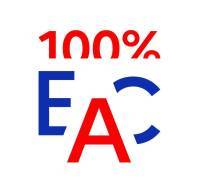Présentation du dispositif
Qu'est-ce que l'éducation artistique et culturelle (EAC) ?
L'éducation artistique et culturelle (EAC) est une éducation à l’art et une éducation par l’art. C’est un parcours cohérent qui associe la fréquentation des œuvres, la rencontre avec les artistes et les professionnels de la culture, l’acquisition de connaissances et la pratique artistique. En contribuant au développement de la créativité et de l’esprit critique des enfants et des jeunes, l'éducation artistique et culturelle leur permet de donner du sens à leurs expériences et de mieux appréhender le monde. La généralisation de l’EAC implique la mobilisation de l’ensemble des acteurs territoriaux, ministériels, artistiques, culturels, associatifs, pour développer des actions au plus près des territoires.
Qu'est-ce que le label 100% EAC ?
Le label 100% EAC valorise un engagement, une démarche partenariale et une stratégie pour parvenir à la généralisation de l’éducation artistique et culturelle sur le territoire. Le label est attribué par le préfet de région et le recteur d’académie pour une durée de cinq ans renouvelables, après avis des services déconcentrés (rectorat et direction régionale des affaires culturelles), qui peuvent mobiliser d’autres experts. Le Haut Conseil de l’éducation artistique et culturelle (HCEAC), réuni en séance plénière le 17 décembre 2021 en présence de des ministres en charge de la culture et de l’éducation nationale, a officiellement lancé la démarche de labellisation « 100% EAC » pour les collectivités et les intercommunalités.
Les avantages du label
Ce label apporte une dynamique nationale pour donner de la visibilité à l’engagement des collectivités. Il aide à renforcer la cohérence de l'action, à dépasser les cloisonnements, fédérer les acteurs, mobiliser d’autres partenaires, pérenniser les dispositifs et développer de nouveaux projets. Il ne s'accompagne pas d'une subvention supplémentaire.
Le Haut Conseil de l’éducation artistique et culturelle (HCEAC) réunit les acteurs de l’EAC dans une perspective de partage et d’analyse des pratiques au service d’une politique ambitieuse de généralisation.
Le HCEAC, instance collégiale de trente membres co-présidée par les ministres en charge de l’éducation et de la culture, propose des orientations en matière d’éducation artistique et culturelle. Des représentants de plusieurs ministères (chargés de la culture, de l’éducation, de la jeunesse, de l’agriculture, de l’enseignement supérieur, de la ville, de la famille) siègent aux côtés d’acteurs majeurs des collectivités territoriales représentées par les associations d’élus, et de personnalités qualifiées du monde universitaire, culturel et associatif. Emmanuel Ethis, recteur de la région académique Bretagne, en assure la vice-présidence. Entre 2018 et 2020, les représentants de dix territoires laboratoires se sont réunis en Collège 100% EAC afin d’apporter leur expérience pour l'élaboration des outils méthodologiques qui accompagnent le label 100% EAC.
Le Guide pratique pour l’état des lieux territorial, fruit de cette concertation, présente des critères d’analyse et d’évaluation en trois niveaux, afin d’aider les collectivités candidates à évaluer leur politique en faveur de la généralisation de l’EAC et à proposer une stratégie sur cinq ans pour y parvenir, en formulant leurs propres objectifs.
Vous souhaitez en savoir plus sur le label EAC ? Rendez-vous ici :
Suis-je concerné(e) par cette démarche ?
- Communes
- Départements
Les collectivités territoriales peuvent déposer un dossier pour obtenir le label. Vous représentez une collectivité territoriale ou une intercommunalité (communes, communautés de communes, communautés d’agglomération, communautés urbaines, métropoles, etc.) avec :
- plusieurs établissements scolaires ;
- des lieux d'accueil des jeunes de 3 à 18 ans ;
- une diversité d'acteurs culturels en mesure de proposer ressources et partenariats.
Ne sont pas éligibles les :
- entreprises,
- associations,
- structures culturelles,
- établissements scolaires,
- administrations centrales.
Procédure
1° Auto-évaluation, par les territoires eux-mêmes souhaitant s’engager dans la démarche de généralisation de l’EAC, pour formuler la stratégie pour atteindre le « 100% EAC » sur une période de 5 ans.
Les critères examinent plusieurs aspects liés :
- au contenu des projets : démarche artistique et culturelle (respectant la Charte pour l’éducation artistique et culturelle, disponible en bas de page)
- à la temporalité : temps scolaire / hors temps scolaire, environnement familial
- aux publics concernés : petite enfance, enseignement supérieur, etc.
- à la mise en œuvre des projets par des partenaires culturels
- au pilotage et à l'évaluation.
Les critères sont présentés dans le guide pratique pour l'état des lieux territorial.
Une attention particulière est portée à la dimension pleinement inclusive de ces projets, notamment la prise en compte des territoires prioritaires et des publics en situation spécifique.
2° La décision de labellisation 100% EAC est conjointement prise et cosignée, après avis des services concernés, par le préfet de région et le recteur d’académie.
Ce label est accordé pour une durée de cinq ans renouvelable, après instruction des dossiers par les directions régionales des affaires culturelles et délégations académiques aux arts et à la culture, qui peuvent autant que nécessaire mobiliser l’expertise de leurs partenaires impliqués dans la généralisation de l’éducation artistique et culturelle.
- Ouverture du dépôt des dossiers : date à venir
- Date limite de dépôt des dossiers : date à venir
- Co-instruction par le rectorat et la direction régionale des affaires culturelles, qui peuvent associer d’autres experts : date à venir
- Attribution conjointe du label 100% EAC par courrier cosigné du préfet de région et du recteur d’académie sur avis des services, pour une durée de 5 ans, date à venir.
- Pour accéder au formulaire en ligne, cliquez sur le bouton "Démarrer" en bas de cette page.
- Connectez-vous ou créez un compte, puis laissez-vous guider. Vous aurez besoin du guide pratique pour l’état des lieux territorial pour remplir le formulaire (en bas de page).
Une question ?
Pour toute question sur le label 100% EAC, vous êtes invités à vous adresser au secrétariat général du HCEAC:
Sous-direction de la participation à la vie culturelle, et secrétariat général du HCEAC
Secrétaire générale : gaelle.bebin@culture.gouv.fr
Chargée de mission : florence.fantini@culture.gouv.fr ; 06 66 80 89 28
182 rue Saint-Honoré 75001 Paris
Documents utiles
Partager la page

